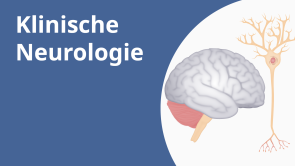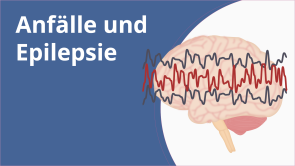Status epilepticus: Behandlung und Typen

Über den Vortrag
Der Vortrag „Status epilepticus: Behandlung und Typen“ von Roy Strowd, MD ist Bestandteil des Kurses „Anfälle und Epilepsie“.
Quiz zum Vortrag
Which statement regarding management is the most accurate during the early stages of status epilepticus (SE)?
- Repeat dosing of abortive antiepileptic medication can be given during stage 2.
- ABCs, IV access, and glucose testing occur in stage 2.
- Abortive antiepileptic medication is given in stage 1.
- Thiamine is recommended for neonates.
- Pyridoxine is recommended for adults.
Which statement is the most accurate with respect to the management of status epilepticus (SE)?
- Approximately half of the patients treated for SE will progress to refractory SE.
- Definitive medical treatment for SE is successful in the vast majority of cases.
- Levetiracetam has a significantly higher efficacy.
- Valproate has a significantly higher efficacy.
- All three definitive medications have an efficacy rate of approximately 75%.
Which statement is the most accurate with respect to refractory status epilepticus (SE)?
- Neuroimaging may be performed to locate a possible nidus.
- Additional medications are avoided during this phase.
- A medically induced coma is initiated for 12 hours.
- Patients are usually less symptomatic at this stage and can be managed on the hospital floor.
- Refractory SE is a relatively safe period with minimal risk of brain damage.
Which statement is the most accurate with respect to super-refractory status epilepticus (SE)?
- In temporal lobe epilepsy, surgical resection may be more effective than prolonged medical therapy.
- Patients must fail 48 hours of burst suppression before they reach this classification.
- There is clear evidence of a specific treatment modality offering the highest efficacy.
- Increasing dietary carbohydrates may be an effective treatment approach during this stage.
- Outcomes of vagus nerve stimulation have been poor, resulting in abandonment of the modality.
Diese Kurse könnten Sie interessieren
Kundenrezensionen
5,0 von 5 Sternen
| 5 Sterne |
|
5 |
| 4 Sterne |
|
0 |
| 3 Sterne |
|
0 |
| 2 Sterne |
|
0 |
| 1 Stern |
|
0 |






